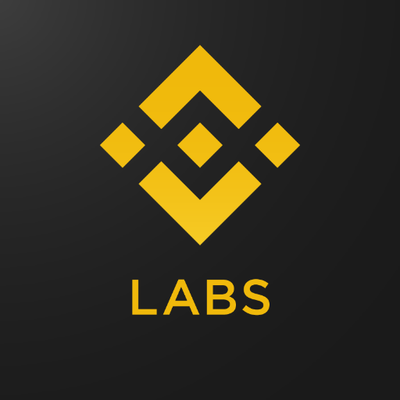Weekly Report | Hong Kong Chief Executive John Lee关注 JPEX Fraud Case; Binance Labs Announces 12 Projects Incubated in Season 6
整理:饼干,ChainCatcher
"What Important Events Happened This Week (9.18-9.24)"
1. Hong Kong Chief Executive John Lee: Very Concerned About JPEX Trading Platform Fraud Case, Implementing Effective Regulatory System to Protect Investors
Hong Kong Special Administrative Region Chief Executive John Lee expressed his deep concern on September 21 during a speech at the Hong Kong financial services community's celebration of the 74th anniversary of the founding of the People's Republic of China and the 26th anniversary of the return of Hong Kong to China. He addressed a fraud case involving a virtual asset trading platform that did not hold a license.
He emphasized the importance of investor education, stating that the financial services sector must clearly inform investors of risks when promoting any investment projects. This incident highlights the importance of investing in licensed and regulated virtual asset trading platforms; otherwise, investors find it difficult to obtain protection. He stated that the SAR government's policy is to implement an effective regulatory system to protect investors, ensure that relevant information is publicly transparent, and prioritize and promote investor education.
It is reported that JPEX has recently been named by the Hong Kong Securities and Futures Commission as operating without a license. According to local media, Hong Kong police have arrested 11 individuals in connection with the case, involving an amount of approximately HKD 1.3 billion (about RMB 1.195 billion). After the Hong Kong Securities and Futures Commission and police took action against JPEX, and local telecom service providers blocked it yesterday, JPEX plans to launch an asset exchange program for "DAO stakeholder dividends" worth approximately 400 million USDT, claiming that users can exchange assets for these dividends, but cannot fully convert them back to USDT in the first two years. JPEX also stated that after the assets are locked on the platform for two years, they can be converted to USDT at 100%. On September 21, users will vote on this proposal, and if approved, the platform will resume normal operations on May 1 next year.
2. Zhao Changpeng: Binance Provided a $250 Million Loan to BAM, Not Borrowing from Them
According to ChainCatcher, in response to a previous report by Decrypt stating that "Binance borrowed $250 million from BAM Management U.S. Holdings," Zhao Changpeng clarified that this is incorrect information. In fact, "Binance provided a $250 million loan to BAM, not borrowing from them, and has not yet recovered it." (Source Link)
3. CoinEx Attack Incident Results in Over $70 Million Loss, Will Fully Compensate Affected Users
According to ChainCatcher, Cointelegraph reported that the cryptocurrency exchange CoinEx disclosed the progress of a previous hacking incident, stating that the leak of private keys led to hackers stealing tokens worth over $70 million. However, the exchange claimed that this amount only accounts for a small portion of its total managed assets, and affected users will receive full compensation for all financial losses.
According to the official announcement, the cryptocurrency platform CoinEx has now resumed deposit and withdrawal services. Users need to generate new deposit addresses, as sending assets to old addresses will result in loss.
CoinEx stated that it is still investigating the identity of those responsible for the security breach, with some blockchain security companies believing the attackers are North Korean hackers from the Lazarus Group. Additionally, CoinEx has opened communication channels with the hackers "to reach a mutually agreed solution." (Source Link)
4. FTX Sues SBF's Parents to Recover Transferred and Misappropriated Funds
According to ChainCatcher, CoinDesk reported that FTX's bankruptcy estate has sued SBF's parents, Joseph Bankman and Barbara Fried, to "recover millions of dollars that were fraudulently transferred and misappropriated." The company requested the court to determine that FTX's bankruptcy estate is entitled to damages and to return any property or payments made to his parents.
The document states that FTX Trading paid $18,914,327.82 (including taxes and costs) to Blue Water and also paid various fees related to Blue Water, totaling over $90,000. Bankman and Fried own Blue Water. The document also states, "Bankman is well-versed in tax law and has a unique understanding of the chaotic corporate structure of the FTX group, which enabled him to facilitate the transfer of $10 million in cash gifts from Alameda Ltd. funds to himself and Fried."
The lawsuit claims that Bankman assisted other FTX insiders in using FTX group's funds for donations and helped cover up a whistleblower complaint from September 2019. Barbara Fried served as the "liaison" for SBF's political donation strategy. Additionally, she used her "connections and influence to profit for MTG (Mind the Gap)," a political action committee she co-founded in 2018 that only accepts independent expenditures, where she served as chair and president. The document states that at Barbara Fried's explicit request, "tens of millions of dollars" were donated to causes supported by MTG. (Source Link)
5. Optimism Launches Third Round of OP Airdrop, Distributing Approximately 19 Million OP Tokens to Over 31,000 Addresses
According to ChainCatcher, Optimism has launched its third round of OP airdrop, distributing approximately 19 million OP tokens to over 31,000 unique addresses to reward community users who actively participate in governance. This round of airdrop began on September 19 at 02:10 and will be directly distributed to addresses that were granted OP token voting rights between January 20 and July 20, 2023, without a claim page. (Source Link)
6. Bloomberg: Ant Group Plans to Withdraw Investment from A&T Capital
According to ChainCatcher, Bloomberg reported that Ant Group plans to withdraw its investment from a $100 million fund, retreating from the cryptocurrency sector. According to insiders, Ant Group is planning to exit its investment in A&T Capital, and it is unclear whether A&T Capital will continue to operate or attract new investors.
This move comes months after A&T's founding partner Yu Jun resigned while the company began investigating Yu's workplace behavior. Former Ant Group executive Yu Jun helped establish A&T and invested in offshore cryptocurrency projects.
It is reported that A&T was founded in April 2021 and has co-invested in several popular crypto startups, including digital asset lending institution Matrixport and Ethereum software maker ConsenSys, with Ant Group being a major investor in A&T. (Source Link)
7. Crypto Fund Scalar Capital Stops Investing, DeFi Protocols Fuji Finance and Gro Protocol Announce Cessation of Operations
Linda Xie, co-founder and managing director of Scalar Capital, announced on social media platform X that she will no longer serve as a full-time investor and will return to the industry to focus on building. Scalar Capital will no longer deploy new capital in the future. Another co-founder, Jordan Clifford, also stated that he will return to family and personal hobbies while sharing this news.
Cross-chain lending market aggregator Fuji Finance announced that it will shut down its protocol and cease operations, requiring users to withdraw funds through the Fuji user interface by December 31, 2023. Starting in 2024, users will need to interact directly with smart contracts unless community members decide to continue maintaining the front-end application.
DeFi yield aggregator Gro DAO voted to pass the proposal to "dissolve the DAO and cease operations" with a support rate of 70.95%, providing stakeholders with a clear exit strategy. The subsequent steps will extend Groda for three months (from October 3 to January 3) to focus on dissolving the DAO and stopping operations, with a budget of 180,000 USDC. Users can withdraw assets from GVT, PWRD, and Pools at any time (indefinitely).
8. Data
- The total amount of ETH in liquid staking protocols has exceeded 12 million.
- A certain whale deposited over 40,000 ETH into CEX via Stake.com in the past 14 days.
- Data: Over 40,000 addresses have yet to claim 70.6 million ARB airdrop, accounting for about 6% of the total airdrop.
- DWF Labs deposited 2 million FET and 100 million JASMY into Binance.
- The total market value of "friend.tech" Keys has reached $109 million.
- Bitcoin OTC trading volume has dropped to historically low levels comparable to the end of 2018.
- Binance's Bitcoin spot trading volume decreased by 57% in September, while Coinbase's increased by 9%.
"What Exciting Articles Are Worth Reading This Week (9.18-9.24)"
On September 13, the Hong Kong Securities and Futures Commission rarely named a virtual asset platform, JPEX, marking it as the first virtual asset exchange to receive a red warning since Hong Kong's new crypto regulations. In response to this naming, JPEX claimed on its official website that it was "unfairly suppressed by the Securities and Futures Commission, leading us to consider withdrawing our license application in Hong Kong and adjusting our future policy development accordingly. The Securities and Futures Commission should bear full responsibility for undermining Hong Kong's cryptocurrency development prospects." JPEX clearly expressed its discontent, asserting that many institutions claiming to have applied for exchange licenses exist, and the announcement only proves the discrimination of the Securities and Futures Commission, with the last sentence being a blatant insult.
Even more ironically, despite the defiant response, JPEX's booth at the Token2049 event was completely empty, indicating a hasty retreat. A booth typically costs at least 10,000 USDT, and their willingness to abandon it reflects their panic.
For Hong Kong, which is building a crypto ecosystem, JPEX not only re-labels virtual currencies as criminal violations but also exposes the loopholes in Hong Kong's virtual asset regulation, severely undermining the confidence of both the political sphere and investors in crypto.
The scale of this industry continues to grow. This year, I have attended various events such as ETHDenver, ETHCC, Montenegro Zuzalu, and Edcon. At this Token 2049, I encountered many old friends. Each of these conferences attracts a significant number of participants, and many companies allocate budgets for such events. Therefore, as the industry grows, even during a bear market, the number of attendees continues to rise.
LPs continue to support early-stage VCs growing within the industry, and VCs keep backing emerging track founding teams, which are expanding and scaling up. It seems everything is heading in a better direction. However, the reality is quite the opposite; for many teams, this Token 2049 may be their last hope for financing. If the bear market does not end, this could be their final brand exposure, as most early teams have exhausted their runway due to expansion over the past two years. Some teams have a very high burn rate and are left with only 5 to 10 months of runway. They are even willing to buy overpriced tickets/sponsor booths at Token 2049 to pitch to more potential investors.
3. "Introduction to 12 New Projects in Binance Labs' Sixth Season Global Incubation Program"
Binance Labs announced 12 incubation projects for the sixth season, including infrastructure, DeFi, AI-driven DApps, and GameFi/SocialFi categories. They are: Vistara, UXUY, BBOX, Derivio, Ethena, Shogun, MyShell, NFPrompt, QnA3, Cellula, Crypto Café, and MetaCene.
4. "Eclipse Mainnet: A New L2 Paradigm Combining Solana and Ethereum Technologies"
The beauty of Ethereum lies in its continuous innovation. The rollup-centric roadmap exemplifies this, delegating execution and innovation to the free market. L2 has the incredible ability to leverage Ethereum's network effects and settlement guarantees while experimenting with the best new execution environments. Eclipse Mainnet is a natural realization of this vision.
If one day a higher-performance execution layer emerges, we would be excited to see it deployed as a competitive Ethereum L2. Until then, SVM remains the standard.
5. "Bankless Talks to Vitalik: Crypto Facilitates the Secondary Distribution of Human Society"
-- Excited about the decentralized social track; Farcaster and Lens are doing well.
-- The great vision of ETH is to truly create an independent open tech stack.
-- Building a user-friendly "slide" is the holy grail of mass adoption.
-- Crypto can facilitate the secondary distribution of human society, and ETH can exist as a system that promotes distribution.
-- Asia's contribution to crypto is becoming unprecedentedly significant.
-- The AA wallet track is slightly saturated, but there is optimism for builders focusing on security, infrastructure, and enterprise stacks.
-- The most important thing in the next bull market is to achieve a balance between yield and security.
6. "Interpreting Intent-Centric Grounding Challenges from UniSwapX and AA"
Recently, in a well-known venture capital firm Paradigm's article "Intent-Based Architectures and Their Risks," "intent-centric protocols and infrastructure" ranked first among ten trends in the crypto field, combined with the Bob the Solver project and Anomo, DappOs' years of exploration at the ETHCC conference in Paris. This has sparked industry attention on intent-centric architecture and this track, with the core goal of significantly enhancing user experience by completely obscuring complex transaction details, thus being viewed as a new engine for promoting Web3 adoption.
During the Token2049 hackathon, I collaborated with the AstroX wallet technology team (focusing on high ROI growth products for the ToB side) to achieve the second-place project in the intent-based DeFi track: Ethtent. This article will discuss the journey of implementing Solver and the applications of ERC4337 and UniSwapX in grounding.
What is "intent"? Can it be so beautiful? What are its applications? What are the challenges of grounding?
7. "Bankless Talks to MetaMask Co-founder: Why is MetaMask Snap So Important?"
Recently, MetaMask launched MetaMask Snaps at Permissionless II. With this feature, users can achieve interoperability with Bitcoin and non-EVM blockchains. As leading wallets in the industry begin to expand their ecosystems and integrate more tokens and functionalities on-chain, could this be the "Chrome extension" moment for cryptocurrency? Is this the way to attract the next billion users to crypto? In this episode, MetaMask co-founder Dan provided an in-depth introduction to the new Snap feature and discussed its future development and potential impact.
8. "The Fed's View on RWA: Tokenization and Financial Stability"
In a working paper on tokenization published by the Federal Reserve on September 8, it stated that tokenization is a new and rapidly growing financial innovation in the crypto market, analyzed from the perspectives of scale, advantages, and risks. It first introduced the concept of tokenization, which refers to the process of creating digital representations (crypto tokens) for non-crypto assets (underlying assets). In this process, tokenization establishes a link between the crypto asset ecosystem and the traditional financial system. At sufficient scale, tokenized assets may transfer the risk of severe volatility from the crypto market to the underlying asset market of traditional finance.
Against the backdrop of rising standards in the global gaming industry and overcapacity, Web3 has become one of the avenues for game manufacturers to recover costs due to its high profit margins throughout the entire lifecycle, attracting many web2 teams. However, the supply side of web3 is currently facing overcapacity, and the demand side is experiencing liquidity depletion, with the drawbacks gradually becoming apparent after two years of development.






































